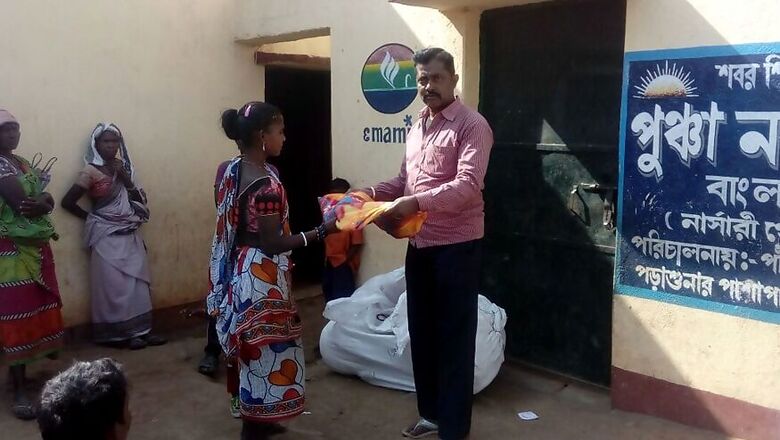Meet Kolkata's 'Police Dada', the Constable Who's Changing the Lives of a Neglected 'Criminal Tribe'

views
On a regular day, he is in his Kolkata Police uniform, managing traffic in the city. But there is much more to Constable Arup Mukherjee. Hundreds of members of the Sabar tribe in Bengal’s Purulia district owe their education and employment to him, thanks to his efforts to uplift the condition of some of the most backward citizens of the state.
It all began in 2010 when Mukherjee used his savings of Rs 4 lakh to build a school for children from the Sabari tribe over a 700 square feet plot. The Purba Nabadisha Model School started with nine classrooms and just 20 children.
Today, the school offers education to 112 tribal children and provides them with clothes, toiletries and a decent meal. No wonder Mukherjee, who himself hails from the district, is lovingly called ‘Sabar Pita’ or ‘Police Dada’ by members of the tribe.
The Sabars are one of the state’s most backward tribes living in central Bengal’s forest-covered “Jungalmahal” area of Purulia, Bankura and West Midnapore districts. The region, not so long ago, had the dubious distinction of forming the state’s Maoist heartland.
Classified as a ‘Criminal Tribe’ during the British Raj under the Criminal Tribes Act of 1871, abject poverty had driven the Sabars to crimes like theft and dacoity. Although much of that has now changed, the Sabars still remain a marginalised lot.
One direct impact of Mukherjee’s efforts is reduction in crimes among the Sabars of Purulia. “Many parents with criminal background have now reformed themselves since they know their children are in good hands. Parents of around 30 children in my school have given up crime. This gives me great satisfaction,” Mukherjee said.
Despite the success, Mukherjee rues that lack of opportunities for tribe members often brings these efforts to a nought. Speaking of a Sabar girl who made her tribe proud by completing her secondary board exams, Mukherjee said: “Because of lack of job opportunities, she was coaxed into getting married and was forced to work as a household maid. The tribe still faces ostracism from many quarters which makes it more challenging for them.”
But he remains undaunted. It was his grandfather’s influence that made him take up the task of educating Sabar children under challenging circumstances. Today, his school has better amenities thanks to the support of a US-based NGO and donations from ordinary people.
Mukherjee’s work has been recognised by multiple organisations, which have conferred him with numerous awards. But he admits that the real backbone of support comes from his family members who stand with him shoulder-to-shoulder to help fulfil his dream of a better life for some of the most deprived.



















Comments
0 comment